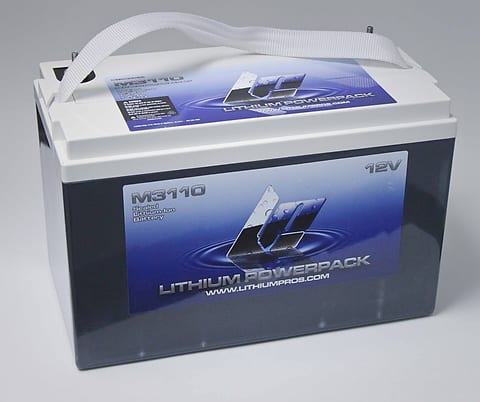 What’s not to like?
What’s not to like?
Lithium-ion batteries are promoted as outperforming alternatives to lead acid batteries.
They both power the starting of an outboard engine, trolling motors and onboard electronics. But lithium-ion batteries, dealers say, throw more voltage than lead acid ones and can be recharged in a third of the time it takes for the conventional batteries.
And they’re a lot lighter. At around 18 to 30 pounds, they can cut at least 100 pounds from a bass boat, increasing speeds by as much as 3-5 mph — a big consideration for tournament anglers.
But some lithium-ion batteries can cost $1,000 or more.
“The sticker shock is amazing,” said Kevin Bennett, president of Lithium Pros of Knoxville, Tenn. “People ask all the time, ‘Will the cost come down?’
“I see it coming down somewhat, but not hugely, not like with personal computers.”
The reason, Bennett explained, involves the availability of raw materials used to make lithium-ion batteries.
“You have a lot of aluminum, copper and some rare earth components,” he said, “and I don’t see the costs of those things coming down.
“As the world economy heals from all the financial meltdown, you’ll have upward pressure on those commodities.”
The batteries are popular in auto racing circles, but dealers are trying to reach tournament anglers.
Ott DeFoe of the Bassmaster Elite Series has signed on to help. The Tennessee angler used lithium batteries for the first time in February’s Bassmaster Classic.
DeFoe said he was excited with their performance he got from the Lithium Pros batteries. As for his performance, he won fifth place.
“Cost is definitely the biggest hurdle with it,” DeFoe said. “But they got some major benefits. Just the fact that you can save so much weight, you run a little shallower and float a little shallower.
“And in the tournaments, if we only have three or four hours to recharge our batteries, that’s good enough.”
But Bennett said that another appeal is the lithium-ion batteries’ longevity — about 10 years or more.
He said that if an angler is replacing batteries every two to three years, “changing to lithium will help him in the long run.”
Similar advantages are reported by Lithionics of Clearwater, Fla.
“Our batteries are designed to a 20-year life,” states a company fact sheet. “In three years we have yet to see one of our batteries simply ‘wear out.’”
The company also stated its batteries save 170 to 260 pounds on a boat.
“A bass boat will typically draft up to 2 inches higher in the water, thus allowing for a greater range of shallow water fishing capabilities,” the company said.
Both companies say their batteries maintain steady power curves right up until they’re completely out of juice. So, according to Lithionics, “Your trolling motor will run 100 percent power for the entire charge curve of the batteries.”
But considering sticker shock, Bennett said he and his competitors have a lot of work ahead of them.
“I don’t think lead acid manufacturing facilities are going to be shutting down tomorrow because of lithium-ion,” he said. “Entering the marine industry has potential, but it’s going to take a lot of education.”

